#IDAHOBIT2018: These people have shared their experiences of being bisexual in the UK today
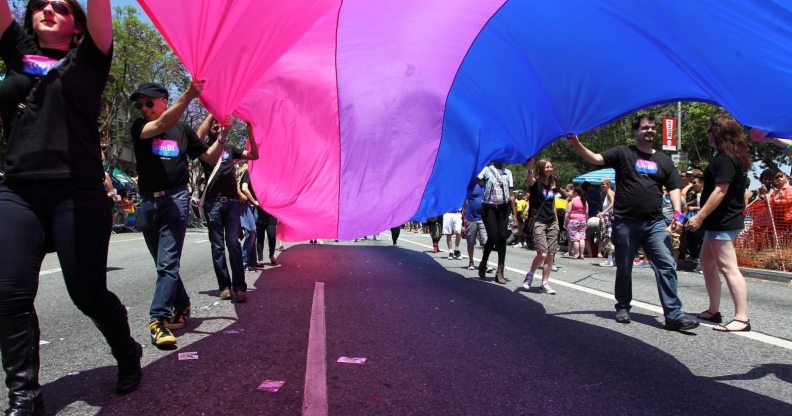
The bisexual pride flag at Los Angeles Pride 2009. (David McNew/Getty Images)
Thousands of people may identify as bisexual, but the sexuality still faces a great deal of stigma in gay and straight communities alike.
Whether bi people are left to navigate bi-erasure, more prevalent health threats or an increased risk of sexual violence, the unique stakes for bisexual people are still little understood.
To mark this year’s International Day Against Homophobia, Transphobia and Biphobia (IDAHOBIT), these young adults have shared what it means to be a bisexual person in the UK today.
Pip Williams, 23, writer
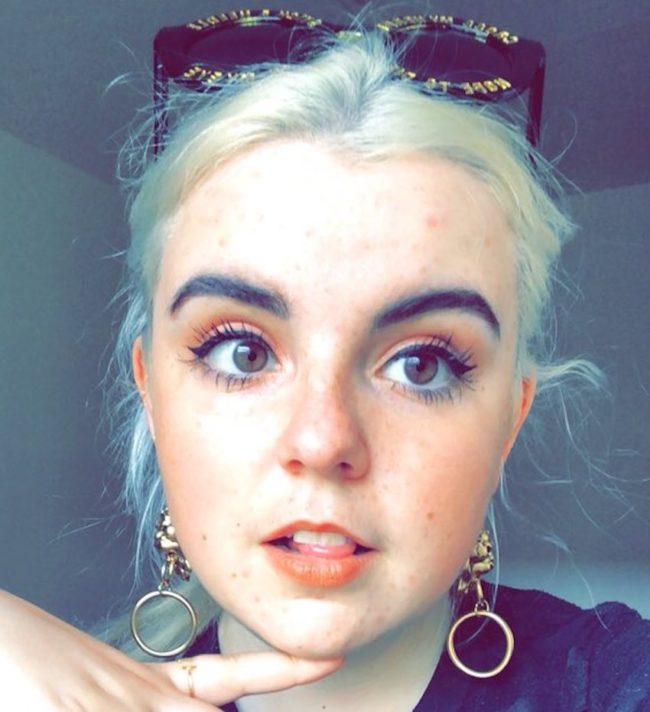
It’s pretty much a pre-requisite for being my friend to be actively working not to erase my sexuality or that of other bisexual folks. It’s all too easy to when I’m monogamous and in a long-term relationship.
Before my partner came out as trans, I talked openly about having a girlfriend at uni/work and just found I was assumed to be a lesbian. People would always just assume without asking and be surprised if I expressed any interest in men. I had to explicitly state my bisexuality for it to even be considered as an option.
I do still feel like I’m battling a lot of stereotypes as a bisexual woman. I only recently embraced the label after identifying as “queer” for a while because I felt like the ideas people got from hearing “bisexual” were so off the mark when it came to my sexuality and who I am as a person.
I came to realise that was internalised biphobia I had to unlearn – bisexuality doesn’t have to be synonymous with sexual experience, non-monogamy, or promiscuity (though equally could be for someone else).
Martin Willis, 28, comedian
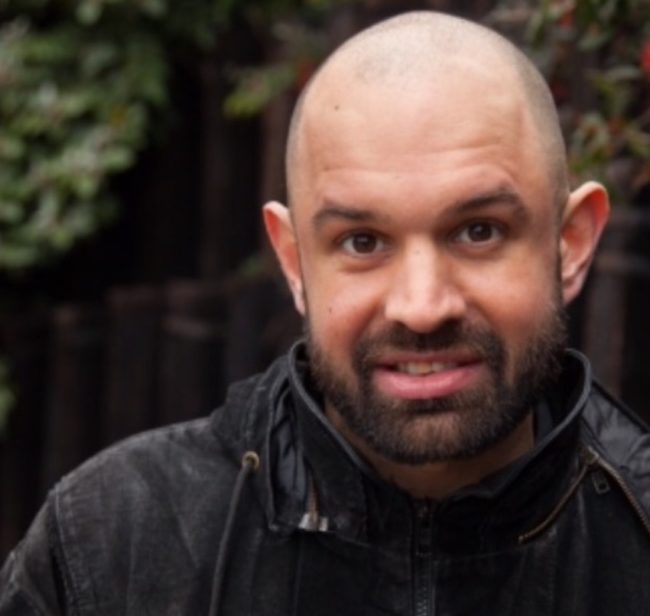
My friends universally acknowledge my sexuality, certainly. I wouldn’t have ‘em around otherwise. Whether some of them understand, though, that’s a different matter. Like, their expectations of my dating patterns or sexual inclinations are either based on societal misconceptions about bisexuality generally, or informed by my behaviour before I came to own my sexuality as I now do.
But they do try. And they don’t care, or judge, and that means the world. It took me so long to accept my own sexuality, after years of violence and death threats, that I feared they wouldn’t be able to stomach it either. But they shared my relief and pride at being open about it, which was beautiful.
Societally, there’s quite a way to go. I feel accepted, sure, inasmuch as there is an open conversation taking place in the media that is slowly informing those that are open to hearing about it. But most people don’t care or don’t consider our experience.
It’s weird though, being a bi boy. There’s a problematic narrative around bisexuality in women, as it’s so often seen through the male gaze and expressed performatively by women who consider themselves straight. But it seems there is more room for exploration and self-understanding in this, which I have certainly envied.
Men often find ourselves outcast from both straight and gay communities, which can lead to loneliness and depression. But that’s getting rarer, especially the more we are able to comprehend and vocalise our collective experience.
Thea Bibby, 21, student
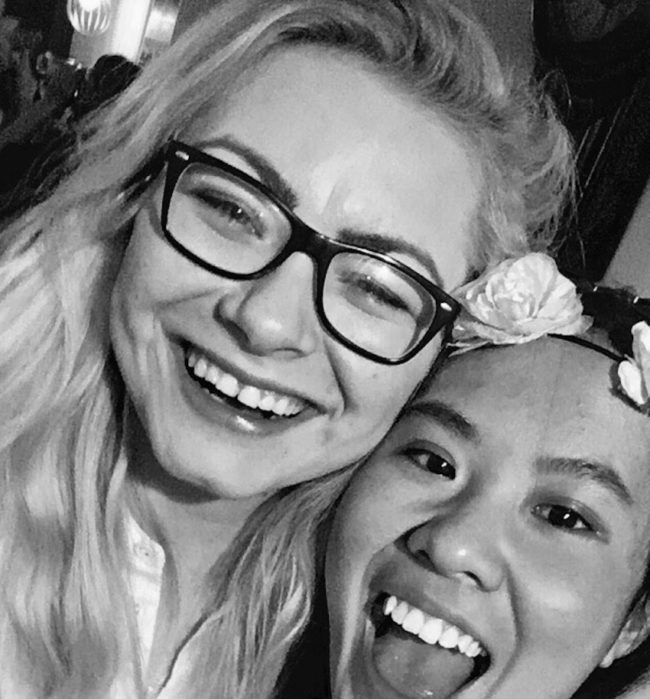
I think for the most part, things are improving. As acceptance and tolerance grows, more and more people are coming out as bisexual. This is helping destroy the old, analogue narrative of “gay and straight/us and them.”
Specifically about bisexuality, as a young person whose experience as a bisexual has been throughout university and in an upmarket pub, I think it’s become much easier. When I come out for the first time, people normally make a lighthearted comment – usually something like, “Oh, lucky you, you’ve got twice as much choice!” However, I feel pretty privileged with my experiences as I know that it’s not always the case.
For me, the main thing people have struggled to grasp is that bisexuality doesn’t necessarily mean 50-50 straight and gay. I call myself bisexual even though I’d say I’m actually about 90 percent gay, and that’s definitely the thing that’s confused people most.
Jasmine Andersson, 25, journalist
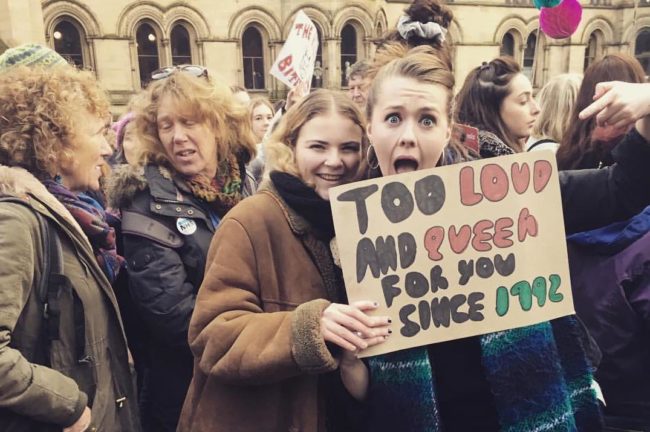
Coming out as bisexual was a frustratingly internalised struggle for me. The one person in my family who had a gay partner spent her life with them being called “her friend,” and I didn’t really want to be the odd one out. But now, after some long chats with my parents and extended family, they really get my bisexuality. Friends have been amazing about it – I’ve had no problems whatsoever – and I’m happy to say I’m part of my own queer family.
Society is catching up with bisexuality, I think. There’s more representation in the entertainment industry than ever, but there’s still a lot of slapdash media headlines that tout someone as “a lesbian” if they also bat for the other side. While people understand queerness, they don’t necessarily understand being able to be both.
I want health services I access to improve, too. I’ve ended up in such a hole when I’m pigeonholed as straight or there’s assumptions around who I’m dating. I think with meeker individuals who find disclosing their sexuality difficult, this could put them off accessing the help they need.

